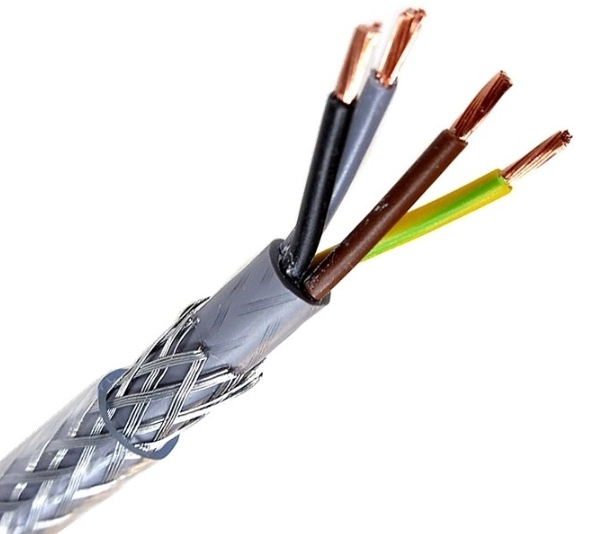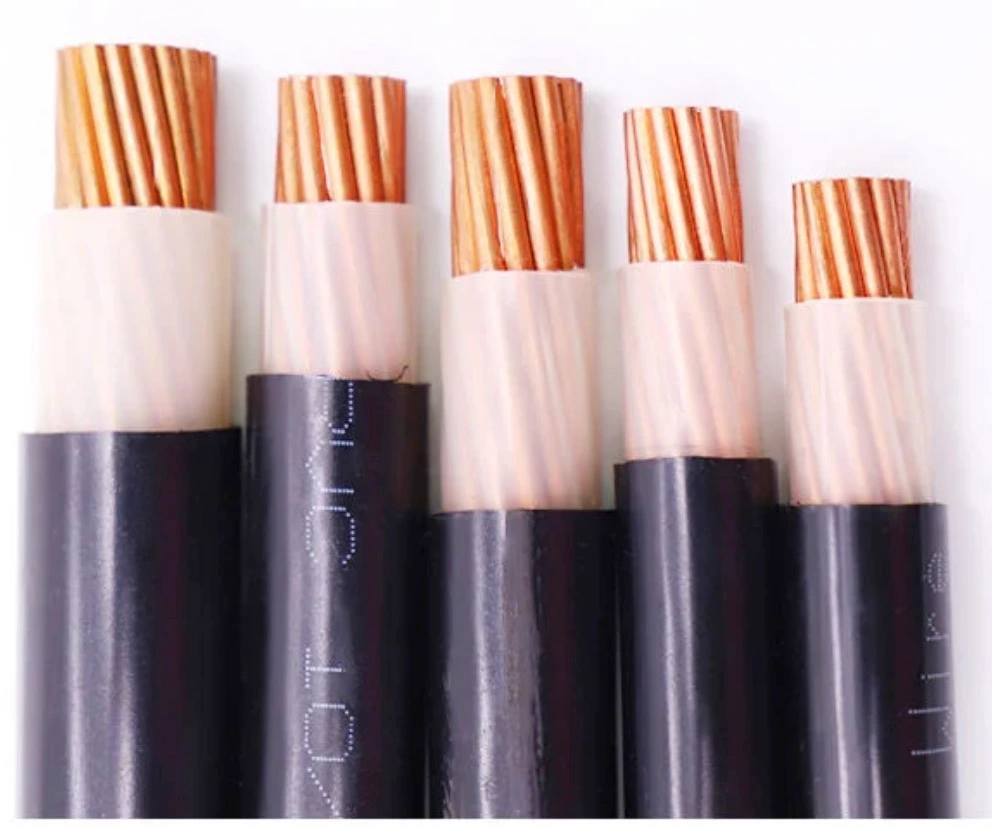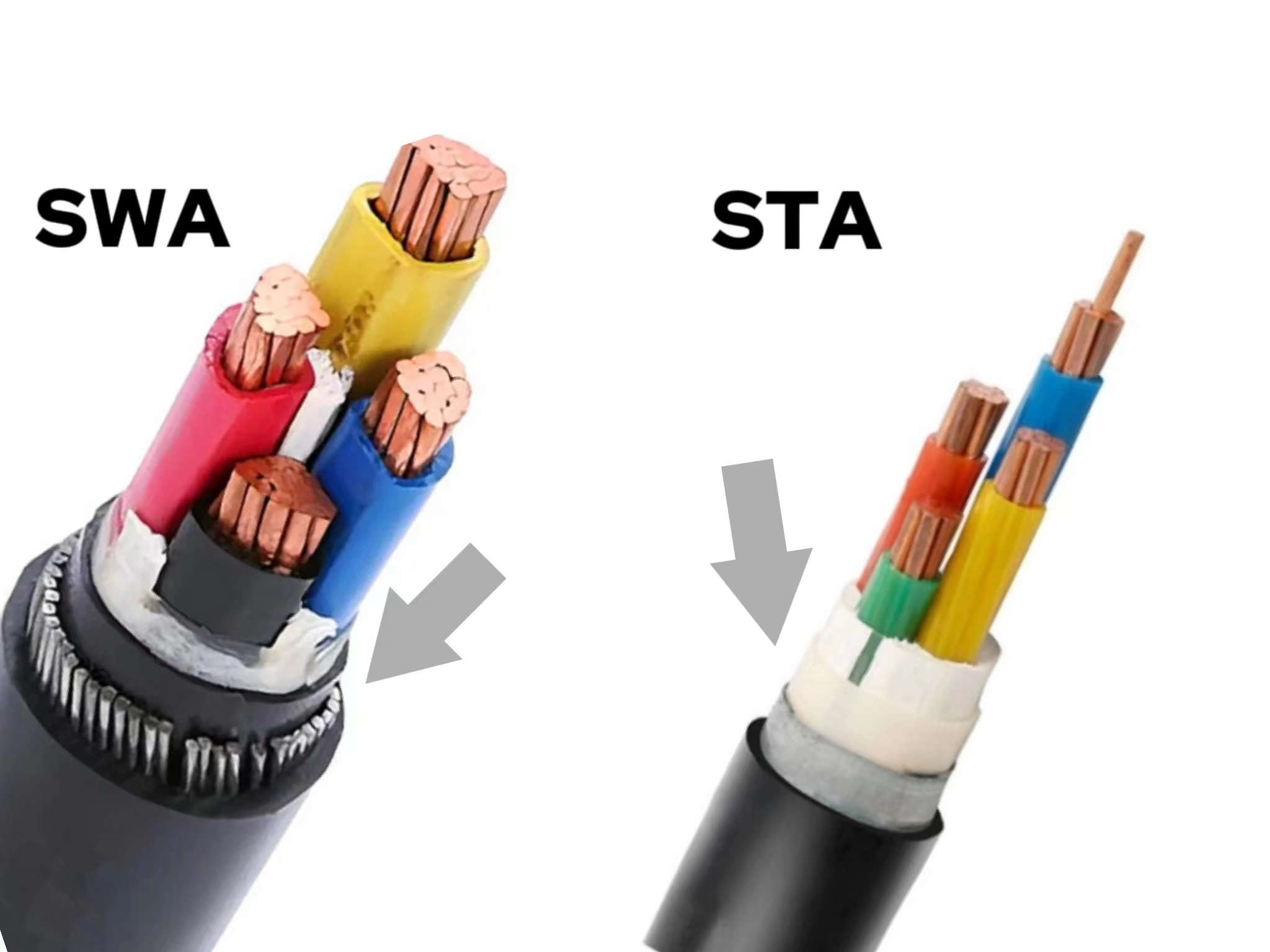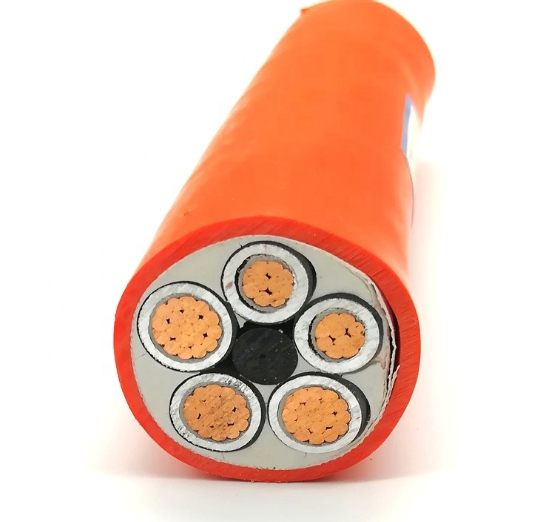Welding cable vs battery cable has long been a hot topic because they not only have a similar appearance but have similar features and functions in some ways. Despite their different design goals and usage environments, they are both used for electrical connections, play an important role in such connections, and are widely used in different fields. Therefore, it is necessary to understand welding cable vs battery cable.
In this welding cable vs battery cable comparison, we will delve into their features, strengths, and limitations, enabling you to choose the most suitable cable for your electrical needs.
What is Welding Cable?
Welding cable is a specialized cable designed for welding applications, powering the secondary circuit for electric welders. It is capable of withstanding the high currents and transient current spikes generated during the welding process. The fine-stranded copper wires make the welding cable more flexible, withstanding constant movement, resulting in easy operation under complex welding environments. And it is typically made of rugged insulation(EPDM rubber), which is essential to withstand the high temperatures generated during the welding process and protect them from exposure to harsh conditions, such as oil, chemicals, and abrasion, ensuring long-lasting performance and durability. Also, it can maintain good performance in extremely cold temperatures.
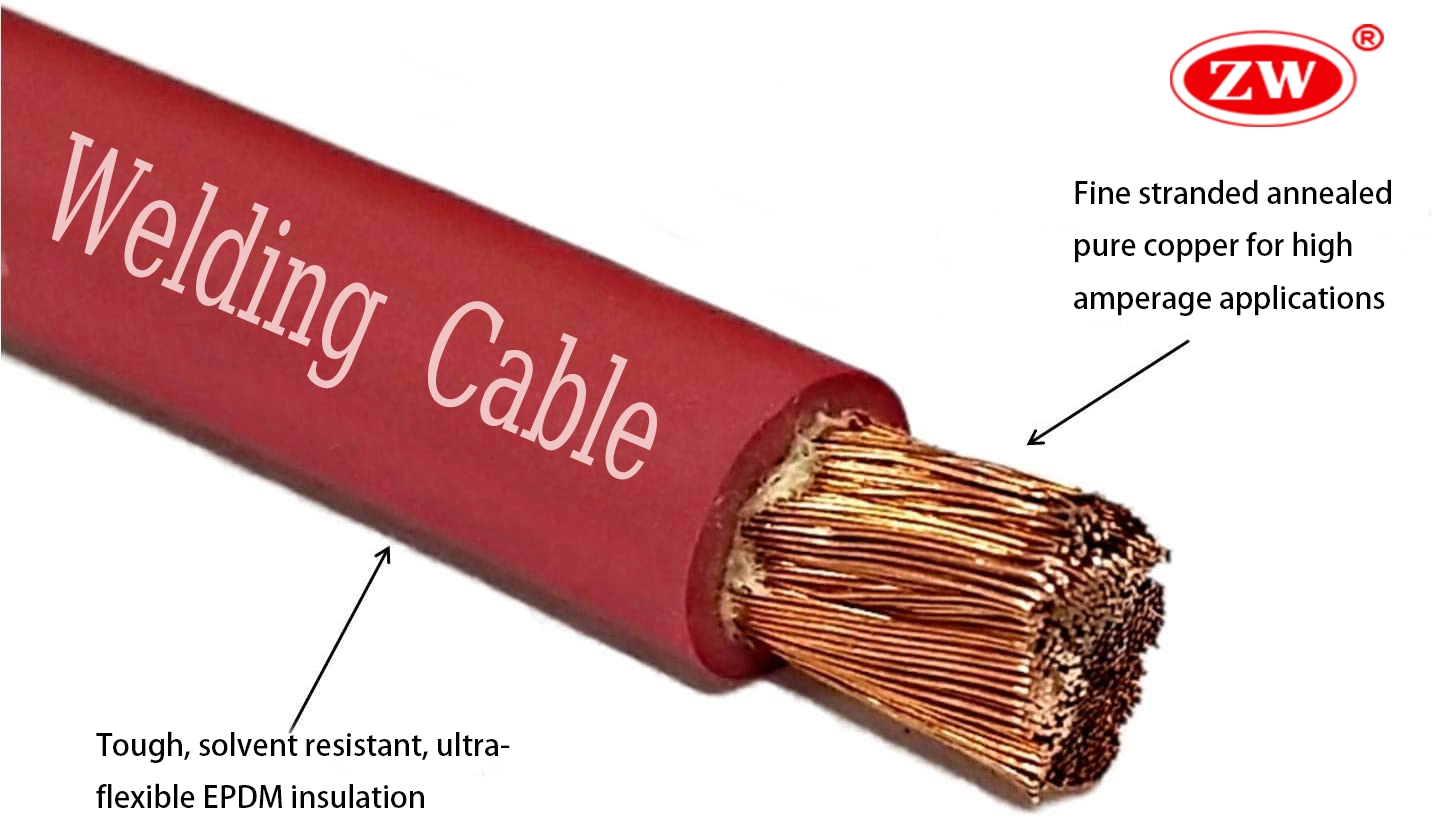
However, it is also because these designs and materials are specifically designed to handle high currents and harsh environments that welding cables are more costly. Flex welding cable also require specific connectors designed for welding applications, which may impose additional effort. Additionally, given that welding cables are required to carry high currents, they are often larger in size and weight compared to other cables for low-current applications, making installation and wiring more difficult, especially in tight spaces or where long transmission distances are required.
What is Battery Cable?
Battery cable is a type of electrical cable designed to connect batteries to various electrical components in automotive, marine, and other similar applications. Normally insulated with PVC, battery cable can bear adverse conditions like corrosion 、vibration, and abrasion, making them long-lasting and reliable. Stranded copper enables it to maintain good electrical conductivity and ensures a reliable power supply. Moreover, battery cable has a wide range of applicability; you can find it in various electrical systems that rely on battery power.
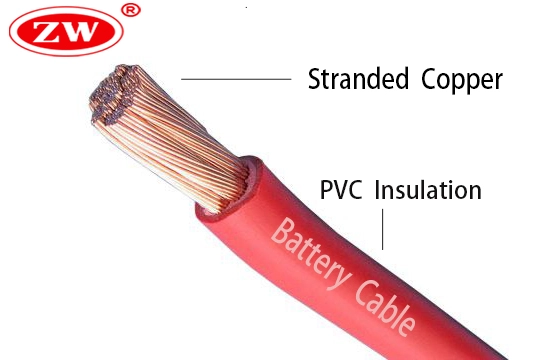
On the other hand, since battery cable is designed for low-voltage electrical systems, it may not withstand the demands of high-voltage applications; using it in high current could lead to cable overloading problems. And its current-carrying capacity is limited by length; longer battery cables may result in current loss and voltage drop, especially in high-current applications. Finally, though battery cables generally have some temperature resistance, their use in extreme environmental conditions may be limited.
Welding Cable vs Battery Cable
Welding cable and battery cable commonly use copper conductors due to their excellent electrical conductivity. But welding cable vs battery cable still have a lot of differences; for example, battery cables have thicker conductors, which means that it’s not as flexible as welding cables. And Welding cable is often available in longer lengths to accommodate the mobility required in welding applications, allowing welders to move freely around the workpiece without being constrained by the length of the cable.
Here is a welding cable vs battery cable comparison table:
| Identities | Welding Cable | Battery Cable |
|---|---|---|
| Conductor | Copper | Copper |
| Wire Strands | Finely stranded | Stranded |
| Voltage Rating | Up to 600 Volts | Up to 600 Volts |
| Insulation | EPDM Rubber | PVC |
| Flexibility | More flexible | Less flexible |
| Temperature Rating | -50℃ - +105℃ | -20℃ - +85℃ |
| Durability | Designed to withstand harsh welding conditions | Built to withstand regular use and vibrations |
| Cost | High | Relatively low |
And many customers have asked if it is possible to use welding cable for battery cable given it has higher current capacity and heat resistance. Below is the answer to this question based on a study of welding cable vs battery cable.
Can you Use Welding Cable for Battery Cable?
Using battery cable as a replacement for welding cable is generally not recommended. As we learn from the above and the welding cable vs battery cable table, although they have some similarities in conductor materials, they are designed for different purposes.
Here are some key reasons:
- Welding cables are typically insulated with EPDM (ethylene propylene rubber) or neoprene rubber insulation, which provides good resistance to heat, mechanical stress, and oil in welding applications. Still, they may not be specifically designed to withstand battery acid or other chemicals commonly occurring in battery systems. Battery cables, on the other hand, are insulated with specialized insulating materials that provide better resistance to the chemicals、vibration, and environmental factors encountered in battery applications.
- Welding cables are mainly designed to handle high currents and usually do not have a specific voltage rating. In contrast, battery cables are designed for specific voltage levels commonly found in battery systems (e.g. 12V, 24V, or higher). If not handled correctly, it poses a risk of electric shock.
- Battery cables are usually fixedly installed inside the vehicle and do not need to be moved frequently, so the flexibility of welding cables may not be needed.
- Welding cables are made to endure extreme temperatures generated during welding operations. Battery cables, while they could experience some heat, do not generally require the same level of temperature resistance.
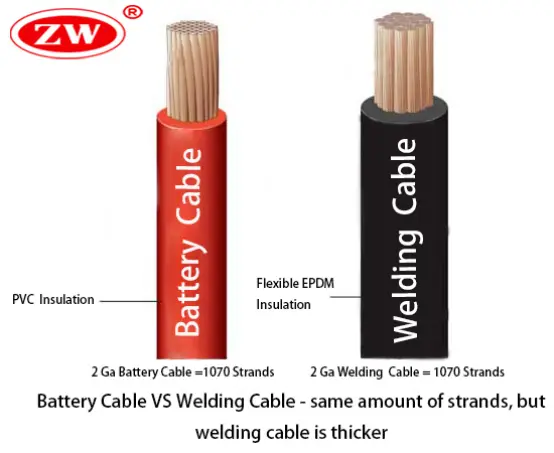
Therefore, though welding cable can be used as a substitute for battery cable in some cases, it is generally recommended to use cable specifically designed for battery applications, for appropriate cable helps ensure the optimal performance, durability, and safety of battery systems. And when choosing between welding cable vs battery cable, using battery cables may be a more cost-effective option.
Bottom Line
With this welding cable vs battery cable comparison and the analysis of both, you must have a deeper insight. If you need to carry a high current, welding cable is the preference; typically, the 2 gauge welding cable and 4 gauge welding cable can fulfill most requirements. And if you don’t have adequate budget, there is no need to use welding cable for battery cable. The latter is the most suitable cable for connecting the battery.
And If you’ve already made a judgment call, whether your needs are for pure copper welding cable or battery cable, ZW Cable has you covered. Our cable would maximize your investment by utilizing the strictest processes and the most advanced technology.
Here are a few frequently asked questions:
2ga welding cable vs 2ga battery cable
2GA welding cable is for welding applications with high current loads, while 2GA battery cable is specifically designed for chemical-resistant battery systems.
Welding cable vs thhn
Welding cables are designed for welding applications and can handle circuits up to 600 volts, while THHN wires are typically used for lower voltage applications, such as residential and commercial buildings.
Battery cable vs audio cable
Battery cable is specifically designed for power transmission in automotive or electrical systems, while audio cables are designed for audio signal transmission between audio devices. Battery cables are more flexible and carry more current than audio cables.


